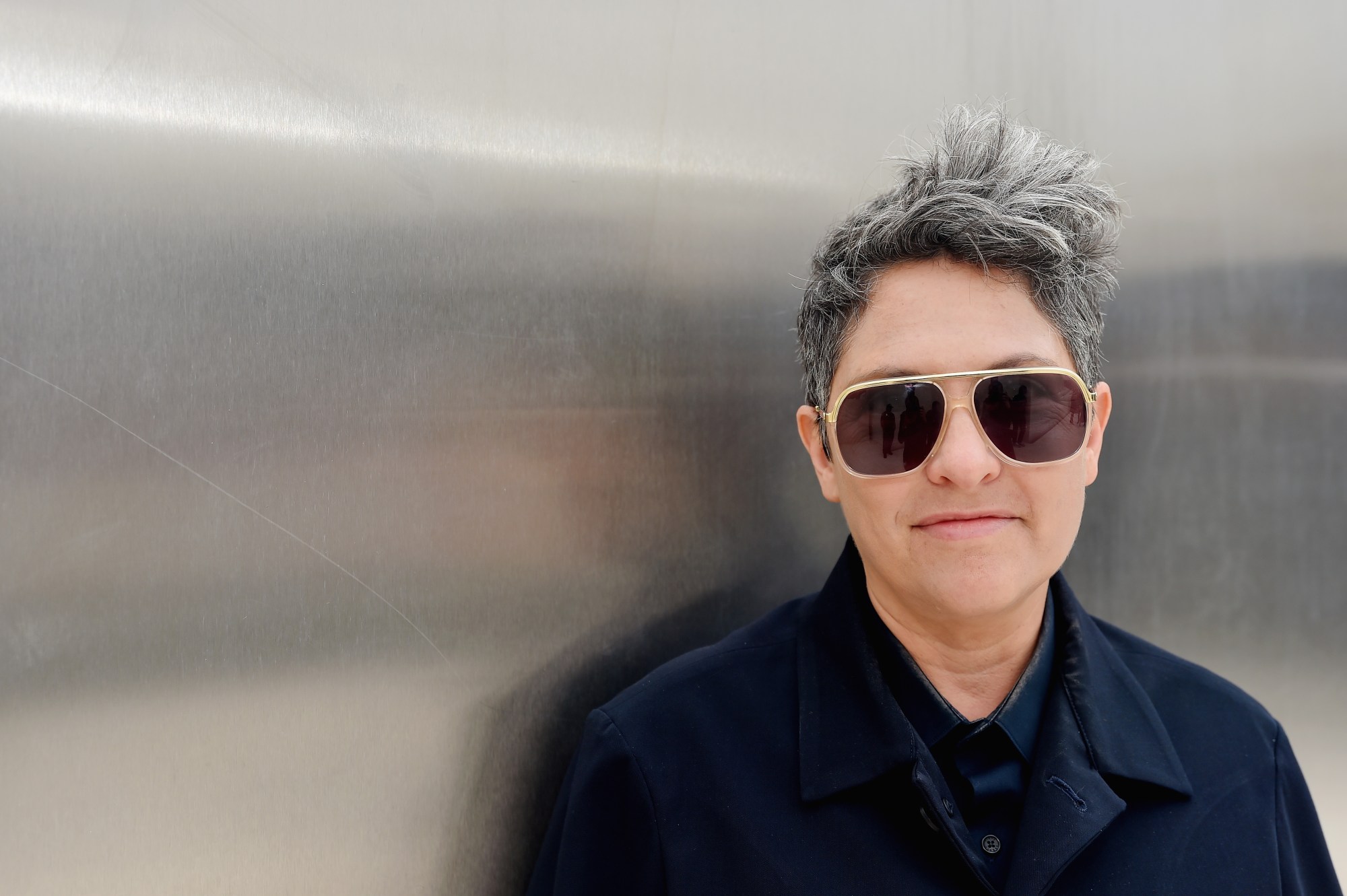
- Interviews
HFPA in Conversation: Joey Soloway, Directing Like a Surfer
Joey Soloway describes themself as a filmmaker, artist, activist and a co-founder of 50/50 by 2020, the movement that seeks equity and gender balance in Hollywood and is part of #timesup movement. Golden Globe-winning TV show Transparent, the story Soloway created based on their own experiences, is coming to its end. The finale debuts on September 27 on Amazon. HFPA journalist Henry Arnaud sat down with Jill Soloway at Paramount Studios, and Soloway reflected on their journey in Hollywood and the decision to end Transparent on a musical note.
“In many ways it felt like my sister Faith came to my rescue with this idea. She is a musician, a songwriter, and a singer and she was already a writer and producer on Transparent. We were already thinking about maybe one day making a musical season. And as Transparent the TV show was falling apart my sister was singing these songs at Joe’s Pub in New York and we were thinking about this Broadway musical and imagining the future.”
Then they realized they can transition the TV show into a musical. “A lot of people say about musicals that that moment when somebody sings it’s because they don’t have any words to actually speak so they have to sing. And that’s what it felt like, that going back and doing just a simple final episode might have just felt like a kind of non-moment. It might have felt like a funeral, it might have felt like just a cap on it but to be able to explode and explore our preconceived notions going to this new place, for me as a filmmaker to be in a place of unknown and mystery and freedom, I think helped us all feel renewed.”
Soloway learned to trust the unknown while they were working on Six Feet Under. “It was a big movement from writer to director because I remember as a writer on Six Feet Under going to the set and really trying to figure out how do I get this scene to turn out exactly as I wrote it. Then meeting a director Dan Attias, who said it’s not about getting it to turn out exactly as you wrote it, it’s about bringing what you wrote and then seeing what happens when you get there. And feeling strong enough to ride the waves of the artistic experience. Once I realized directing is not like drawing, it’s not like writing, it’s like surfing I was ok here comes the wave and get on and be able to stand up while this performance is happening and be able to think in real-time about what the next take is going to be. You plan for a certain amount but then it’s really just kind of almost like a party when you say action, to see what happens and see the alchemy and see what happens when these actors come together with their lines.”
Trusting their instincts and others around them brought Soloway to the journey that changed their life and others’ lives. “It was seven years ago that my parent called me and came out as trans, a couple of years after that where I said I’m going to write a script. The script got made, it was Amazon’s first Golden Globe, it was streaming television’s first Golden Globe award apparently. Sometimes I think that’s really crazy that, the history-making of it. And then, of course, the way that the trans liberation movement has changed so much over the past five years and the fact that Transparent got to be part of it, that to me is more shocking.”
Soloway faced a big learning curve when Transparent’s lead actor, Jeffrey Tambor, was accused of sexual misconduct. “I recognize that the behavior has to be seen in context with the system. So, patriarchy, white supremacy, meaning mostly men, mostly white people have most of the power. When there’s a question I try to look at the system. If it’s an older powerful man who’s curious if he can hug an intern who’s there for her first time, the answer is no because he has white supremacy, he has patriarchy on his side. If it’s two interns, they’re the same gender, they’re maybe the same race, it’s less likely to have a problem with power. I think people have to look and try to be present to the reality of the changing world.”
Listen to the podcast and hear how long it took for they to make it in Hollywood; what they was thinking to do just before they got the idea for TransparentTransparent’s finale and how did it affect people’s jobs; whether they are they going to challenge the establishment in the future; why they try to open more possibilities to minorities; what is harassment; why one shouldn’t talk about sex at work; how the future looks for white male society; how different states are recognizing nonbinary and gender non-conforming people; how to learn when to use he, she, they; how they explains what trans is; how their kids think about their change; what kind of advice they give to parents whose child indicates they are trans; what they is doing next; whether or not cis people should be able to play trans roles; what they is scared of; what they has learned about their sexuality; what is next for Transparent

